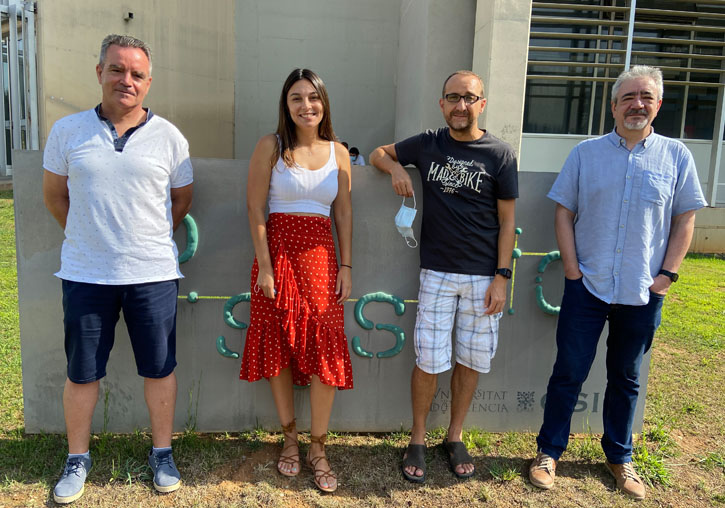Users
Social media
- More details here...
- Address
Parc Científic de la Universitat de València C/
Catedrático Agustín Escardino, 9
46980 Paterna (Valencia) Spain - Email:
iu.i2sysbio@uv.es - Phone:
(+34) 963544810
- Address
Links
They design a protocol to improve the detection of viruses in blood samples from healthy people

Investigation
They design a protocol to improve the detection of viruses in blood samples from healthy people

The Institute of Integrative Systems Biology (I2SysBio), a joint center of the University of Valencia and the Higher Council for Scientific Research, has developed a procedure that increases the sensitivity to detect viruses in blood samples from healthy people, in addition to reducing the effect of contamination. The research, published in Scientific Reports, has also described 28 potentially new species of anellovirus, a family present in numerous animal species, but for which no clear associations with specific pathologies have been detected to date.
The detection of viruses in blood samples has been facilitated by new metagenomic analysis techniques, but there are still barriers to overcome before routine surveillance mechanisms can be established. To this end, I2SysBio has designed a protocol aimed at enriching the virus fraction in samples from healthy people and thus increasing the probability of detecting new viruses or, simply, rescuing a greater diversity of those already known.
“When a biological sample is sequenced, fundamentally the nucleic acids of the host (in this case, human) are found, or any type of organism that contaminates the sample with which we are working, so to avoid this we have defined this specific protocol. purification," says José Manuel Cuevas, the main person responsible for the study and member of I2SysBio.
The procedure, in which the Transfusion Center of the Valencian Community has also collaborated, consisted of subjecting pooled plasma samples from 120 healthy donors to high-speed centrifugation. Subsequently, the viral particles concentrated in a smaller volume have been purified using molecular procedures, after which massive sequencing of the samples has been carried out.
As José Manuel Cuevas explains, "this type of study based on massive sequencing is relatively new. In it, billions of sequences are recovered from a biological sample in question and a great taxonomic variety of everything in the sample can be found."
Once contamination through this has been ruled out. procedure, researchers have found a wide diversity of anelloviruses, the viral family most frequently found in human blood and which is apparently harmless. These viruses represented almost 97% of the total viral sequences obtained in the study. It should be noted that 28 potentially new anellovirus species have been detected, which represents a notable increase in the diversity described for these viruses in human populations.
“Beyond searching for some type of pathological association, our research highlights the great diversity of anelloviruses found, thanks mainly to the implemented protocol for enriching the viral fraction,” says the author. Thus, the results underline the importance of applying more efficient purification procedures that enrich the viral fraction as an essential step in virome studies, in addition to questioning the potentially pathological character that has been suggested for anelloviruses.
Article: Cebriá-Mendoza, M., Arbona, C., Larrea, L. et al. Deep viral blood metagenomics reveals extensive anellovirus diversity in healthy humans. Sci Rep 11, 6921 (2021). https://doi.org/10.1038/s41598-021-86427-4


